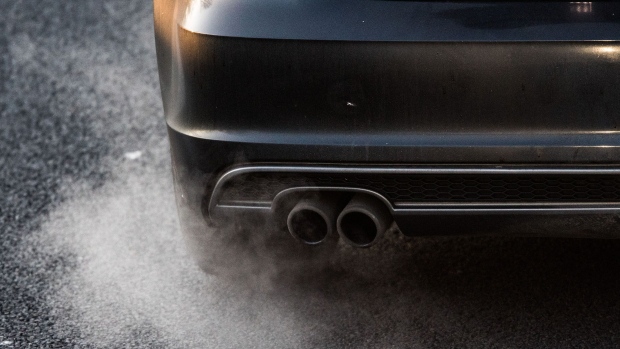Jul 21, 2019
Pollution Costs In Europe Near the Level Where They Really Matter
, Bloomberg News

(Bloomberg) -- Europe’s carbon market is nearing the psychologically important threshold of 30 euros ($33.70) a ton after signs the region will tighten rules on polluters and curtail supplies of allowances.
The value of the securities that cover greenhouse gas emissions from industry and utilities has almost doubled in the past year, finishing Friday at their strongest weekly close since 2006. That followed comments from the designated European Commission President Ursula von der Leyen placing green issues at the heart of the political agenda.
The surge in the cost of pollution along with a plunge in natural gas prices has prompted some power generators to switch away from coal to the cleaner fuel. It’s also starting to revive debate about carbon pricing as a tool for combating climate change, eliminating years of malaise in the market that finally passed in 2018.
“People thought the market might take a breather in July, but they were wrong,” said Ingo Ramming, head of corporate and investor solutions at Commerzbank AG. “The rally through Monday appeared to be driven by financial investors -- everyone is waiting for the market to crack 30 euros.”
Crossing 30 euros would be a crucial milestone for the market, since that is the floor price economists and experts have suggested as a minimum needed to prod industry away from the most polluting fuels. Without putting a cost on pollution, big energy users are apt to opt for the cheapest fuel possible, which often is coal.The indications in the market last week were that carbon may soon breach that level:
- Carbon allowances for December jumped 4% Friday to 28.89 euros a ton, according to ICE Futures Europe. That’s up 0.4 percent from the previous week, marking the longest weekly rising streak since September.
- Calls to buy December futures at 30 euros a ton have the second-biggest open interest in the options market. Options to buy at 50 euros have the biggest interest.
Utilities from RWE AG to Uniper SE are burning less coal this year partly because the cost of carbon allowances has risen. RWE, Europe’s biggest emitter, will boost its gas-fired generation next year by starting up a Dutch plant that’s been mothballed since 2014.
The EU’s Von der Leyen has thrown her weight behind efforts to bring net emissions in Europe down to zero by 2050, which implies tighter emission targets for the coming decades. She wants to deepen the EU’s emission-reduction goal toward 55% below 1990 levels by the end of the next decade, compared with the current 40% target.
“It seems to me that’s a big deal,” said Mark Lewis, global head of sustainability research at BNP Paribas SA’s asset management unit, who’s followed the market since it began.
Prices closed as high as 29.50 euros on July 15 before wobbling on concerns that Britain may exit the EU without a deal later in the year and hit carbon markets with allowances no longer needed by U.K. emitters.Not all analysts are bullish. “We are not necessarily seeing prices move above 30 euros” this year, said S&P Global Platts Analytics' analyst Jeff Berman, by phone. “We're not that bullish on 2020 either.”
Power prices across Europe have tracked carbon higher because the surge in permits make it more expensive to generate at coal and gas plants. The German benchmark for electricity delivered next-year reached its highest level this year last week.
And as the region’s utilities are now selling their power many years in advance, it means they are beginning to hedge those sales by buying carbon allowances for the start of the next decade too.
The rally may continue into August, when the volume of new allowances released through auctions typically plunges as traders head off on holiday.
“The real demand will come if we see volumes surging for carbon allowances with deliveries beyond 2020,” Commerzbank’s Ramming said. “You don’t want to have a short position while heading off to the beach, not in this environment.”
To contact the author of this story: Mathew Carr in London at m.carr@bloomberg.net
To contact the editor responsible for this story: Reed Landberg at landberg@bloomberg.net, Andrew Reierson
©2019 Bloomberg L.P.


